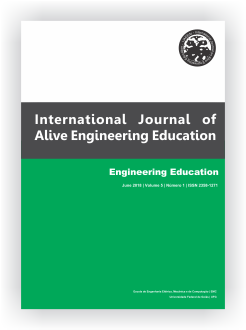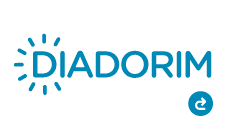Restructuring the Digital Systems Laboratory in Computer Engineering Course
DOI:
https://doi.org/10.5216/ijaeedu.v5i1.50482Palavras-chave:
Computer Architecture, Digital Systems, Problem-based LearningResumo
It's not difficult to find students of Computer Engineering, at the University of São Paulo, in São Carlos School of Engineering, complaining about the way that practical classes are given during the graduation. What is said is that these classes only reproduce results already seen in theory classes, that they are limited by a laboratory script and, at the end, nothing new is added to their knowledge, making them a little bit frustrated about the classes. In this paper, it's shown how PBL (Problem-based Learning) was used in Digital Systems Laboratory, a 4-semester discipline, to start a change in this situation. The main purpose of the project was to use all the knowledge in digital logic, already seen in theory classes by the students, to build the main modules of a basic processor: arithmetic logic unit (ALU), for combinational logic studies; register bank, for sequential logic studies; and control unity, used to study finite state machines. This new way to teach each topic of the discipline brought new challenges to the students, now free to solve them the way they wanted to, once only the specification of inputs and outputs were given. Using FPGA boards and circuit simulators for development, the students succeeded in their task and the modules were built and tested in a test platform, developed to allow the simulation of the entire processor. This project had a positive feedback, either reflected in grades (in laboratory and in related theoretical disciplines) and also in the student's motivation (although some difficulties was found) helping them to understand how different concepts seen during the graduation course are related. This feedback is now helping the development of a new material for next classes, in order to make specifications clearer, correct bugs in the test platform and improve some features for debug.Referências
E. E. Filho, L. R. C. Ribeiro,” Innovating in the teaching of business administration: an experiment with
problem-based learning (PBL)”, Cadernos EBAPE.BR, vol. 6, August 2008.
R. A.. Pilgrim., “Design and Construction of the Very Simple Computer (VSC): A Laboratory Project for
na Undergraduate Computer Architecture Course”, in Bruce J. Klein; Cary Laxer & Frank H. Young, ed.,
'SIGCSE' , ACM, 1993, pp. 151-154.
B. J. Rodriguez, “A Minimal TTL Processor for Architecture Exploration” Proceedings of the 1994 ACM
symposium on applied computing, 1994, pp. 338–340.
D. Feinberg, “A Simple and Affordable TTL Processor for the Classroom”, Computer Science Education,
Vol. 17, Issue 2, 2007.
D. M. Harris, S. L. Harris, “Digital Design and Computer Architecture”, Morgan Kaufmann, 2007.
S. Brown, Z. Vranesic , “Fundamentals of Digital Logic with Verilog Design”, McGraw-Hill, 2002
Downloads
Publicado
Edição
Seção
Licença
Ao submeter eletronicamente um artigo na Revista Eletrônica Engenharia Viva, o responsável pela submissão:
a) Declara que o documento em questão é um trabalho original, e que detém prerrogativa de conceder os direitos contidos nesta licença. Declara também que a entrega do documento não infringe, tanto quanto lhe é possível saber, os direitos de qualquer outra pessoa ou entidade.
b) Se o documento em questão contém material do qual não detém os direitos autorais, declara ter obtido autorização do detentor dos direitos autorais para conceder à Universidade Federal de Goiás os direitos requeridos por esta licença, e que esse material cujos direitos são de terceiros está claramente identificado e reconhecido no texto ou conteúdo do documento em questão.
c) Declara ainda que qualquer pessoa nomeada como autor ou co-autor do documento tem consciência do fato e concorda em ser assim nomeado.
Termo de Autorização
Na qualidade de responsável pela submissão do documento, autorizo a Escola de Engenharia Elétrica, Mecânica e de Computação da Universidade Federal de Goiás (EMC/UFG) a disponibilizar a obra, gratuitamente, por meio do Sistema Eletrônico de Editoração de Revistas da UFG (SEER/UFG) ou na forma impressa, sem ressarcimento dos direitos autorais, de acordo com a Lei nº 9610/98. Fica permitido, a leitura, a impressão e/ou download, a título de divulgação da produção científica brasileira. Qualquer uso da obra que não o autorizado sob esta licença ou pela legislação autoral é proibido.



